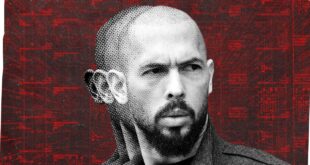Carina Marquez, an associate professor of medicine at the University of California, San Francisco, is a big believer in prevention. So she was delighted when, last year, health authorities in the US and Europe approved the first vaccines for respiratory syncytial virus. RSV vaccines hold the potential to reduce the thousands of hospitalizations and deaths associated with the virus in the US each year. But vaccines are only effective if they get in the arms of the people who most need them. “It’s really important to make sure that people have equal access,” Marquez says. “Inequities in access result in inequities in hospitalizations and deaths.”
There are now three vaccines available in the US—GSK’s Arexvy and Moderna’s mRESVIA are approved for use in older adults, and Pfizer’s Abrysvo for older adults and pregnant women—but already, disparities are emerging in their uptake. Hispanic and Black older adults lag behind their white peers, according to data from the Centers for Disease Control and Prevention. Though the CDC recommends an RSV vaccine to everyone 75 or older, so far this year only 19 percent of Hispanic people in this age group have been vaccinated, compared to 35 percent of white, 31 percent of Asian, and 24 percent of Black seniors.
This worries Marquez, who witnessed how varied access and confidence in Covid-19 vaccines may have worsened health outcomes for Latino and Black Americans during the pandemic. While research about racial disparities in RSV infections is limited, one study suggests RSV affects Latino, Black, and Native Americans at earlier ages than white Americans. “The time to act is now,” she says. “Especially in light of mistrust or hesitancy that’s emerged after the Covid vaccine.”
This October, Marquez is launching a five-year National Institutes of Health study to research how best to motivate one particular community—Latinos in San Francisco—to get vaccinated. Preliminary data she collected last year from 300 survey participants found many were interested in the RSV shot, but that there was also a “big call for more information.”
Identifying and addressing specific concerns around the RSV vaccines will be integral. “As this is a new vaccine for our elders, we need to understand the most effective approaches to facilitate uptake,” says Diane Havlir, chief of the Zuckerberg San Francisco General Hospital’s HIV and infectious diseases division, who is assisting with the study. “Vaccine uptake is most effective when it is tailored and provided in the context of cultural norms and beliefs.”
Marquez’s study will disseminate surveys asking participants questions not just about vaccine safety concerns but about specific demographic data, too. “The Latino community is quite heterogeneous, and to tailor interventions we need more disaggregated data,” Marquez says. Characteristics such as language, how long someone has been in the US, whether they’re insured, and how they get their health information could determine how they learn about the vaccine. “Thinking about social networks, especially those of older adults, is going to be key.”
Marquez hypothesizes that older Latino adults may receive health information from family, friends, and community organizations more than social media campaigns, which can be a useful tool in targeting younger communities. The study seeks to find out whether a grandchild could encourage a grandparent to vaccinate, for instance, building on past evidence that knowing someone personally who received vaccinations is an effective motivator.
Source link
 meganwoolsey Home
meganwoolsey Home



